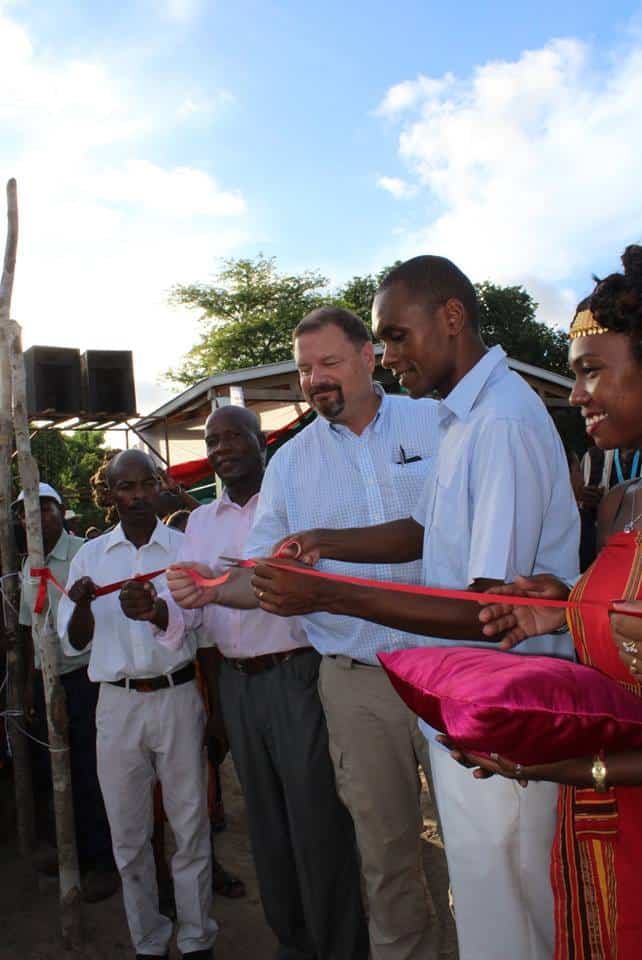USAID Madagascar Mission Director Visits Mahefa Miaraka Sites
May 2nd, 2019 | news
USAID Madagascar Mission Director John Dunlop recently visited three sites supported by JSI’s USAID Community Capacity for Health Program, locally known as Mahefa Miaraka. During the visit, which took place in the predominantly rural Menabe region, Dunlop awarded the Bemanonga municipality with a certificate signifying the community had achieved their goals for improving their community’s health and quality of life.

“Today, we are celebrating this event together so that you can receive recognition for this merit. Thank you all for your efforts: families, Community health volunteers, fokontany, CSB, CCSD and we encourage you to continue to be a model for other Municipalities,” Dunlop said.
Director Dunlop also visited a Mahefa Miaraka-supported bicycle resale and repair program, known as an eBox, which provides donated used bicycles to the community and trains a local team of mechanics on bike repair and maintenance. The cooperative benefits the community in many ways — creating local jobs, covering emergency health transport costs, and helping finance a locally-managed health insurance system.
“We are also proud to see the result of our support, through Mahefa Miaraka, by setting up the Enterprise Box to motivate community actors in their noble task as volunteers. The investments of the American people have had an effective impact on the economy and the health of the Malagasy population and we are confident that you will sustain these innovative interventions,” Dunlop said.
These three sites represent components of Mahefa Miaraka’s broader work across seven regions representing about 22% of the country’s population. With formal partners ASOS, FHI 360, and Transaid, Mahefa Miaraka works in 4,885 fokontany, 456 communes, and 34 districts in the Analanjirofo, Boeny, DIANA, Melaky, Menabe, SAVA, and Sofia regions. Within these areas, the Program trains, supports, and monitors 8,867 CHVs who provide counseling, integrated services and facilitate referrals for newborns, infants and children under 5 (CU5), young people, and women of reproductive age under the supervision of 732 CSBs.
The Program is designed to strengthen public sector capacity to plan, deliver, and manage community health services, to strengthen community engagement in health governance and ownership of health services, and to focus on priority behavior change actions.The USAID team also visited a Mahefa Miaraka-supported community outreach program at a health hut, or toby, where community health volunteers (CHVs) provide services. During the event, which was organized by the local government health center (CSB), CHVs gave routine immunizations and provided parents with group health education and individual nutritional counseling.
We strive to build lasting relationships to produce better health outcomes for all.